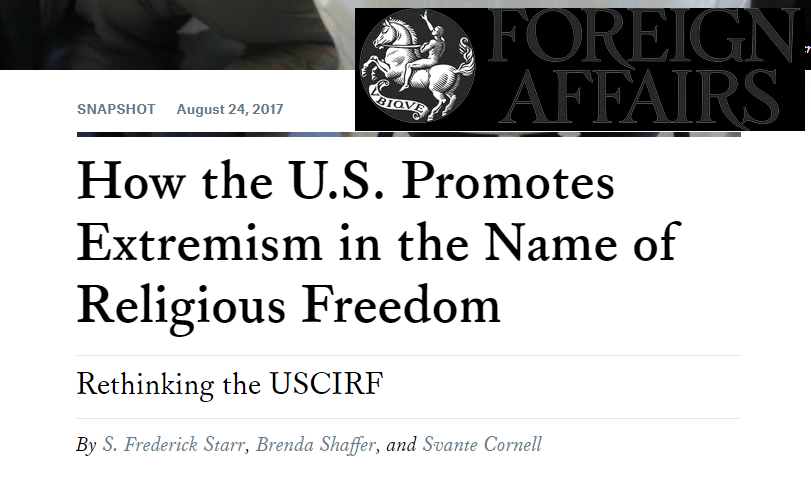Staff Publications
Why Central Asia Counts
By S. Frederick Starr
Both Asia and the West have failed to come to grips with Central Asia, and both are now paying a price for this failure. True, it’s easy to ignore a region that until recently appeared only on the western fringes of maps of Asia, the eastern fringe of maps of Europe, or the southern fringe of maps of Russia. But as we start to view the Eurasian landmass as a single continent, Eureka! There is Central Asia, square in the centre!
Dealing With Turkey: Taking the Long View
Dealing With Turkey: Taking the Long View
By Svante E. Cornell
October 31, 2017
The U.S.-Turkish relationship has recently become so bad that analysts in both countries now wonder if it is beyond repair. There are good grounds for the worsening of this relationship, not least President Tayyip Erdoḡan’s increasingly blatant anti-Americanism. But going forward, American leaders must not make the mistake of equating Turkey with Erdoḡan. They must devise a policy that maintains a long-term view of Turkey as an American ally.
A Religious Party Takes Hold: Turkey
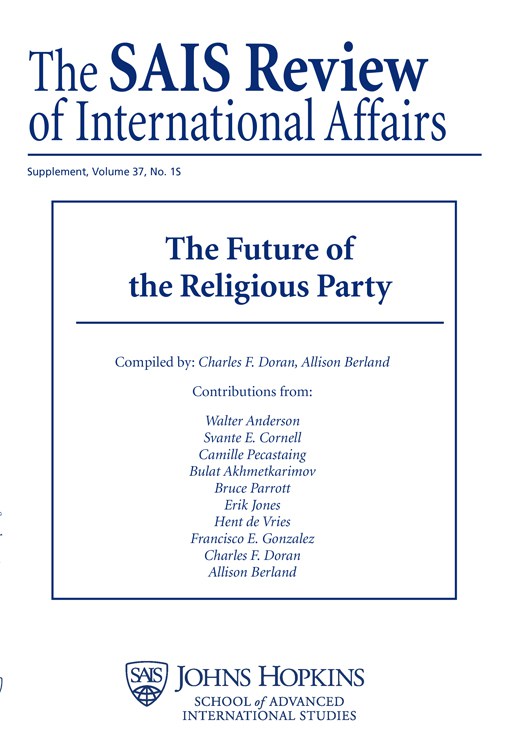 A Religious Party Takes Hold: Turkey
A Religious Party Takes Hold: Turkey
Svante Cornell
Turkey has a unique position in the Muslim world as a country that held the Caliphate for several hundred years but then turned into a secular republic. Over the past ninety years, Islam has coexisted uneasily with the Turkish state, which has tried both to co-opt and suppress a powerful political Islamic movement that began gathering force in the 1960s. Turkey is unique in the fact that a movement rooted in political Islam managed not only to come to power in democratic elections, but proved able to stay in power and continue to win elections for over a decade. Whereas this aspect of the Turkish experience is widely lauded by Western observers, there is nevertheless another side to the coin. As the power of Recep Tayyip Erdoğan and his Justice and Development Party (AKP) grew, they also turned increasingly authoritarian and Islamist. Turkey’s experience is indicative of the broader nature of “moderate” political Islam, and its relationship with democracy; it suggests that “moderate Islamism” has embraced the mechanics of electoral democracy but not its fundamental values.
How the U.S. Promotes Extremism in the Name of Religious Freedom
Central Asia: All Together Now
Central Asia: All Together Now
Bilahari Kausikan, S. Frederick Starr and Yang Cheng
The American Interest, June 16, 2017
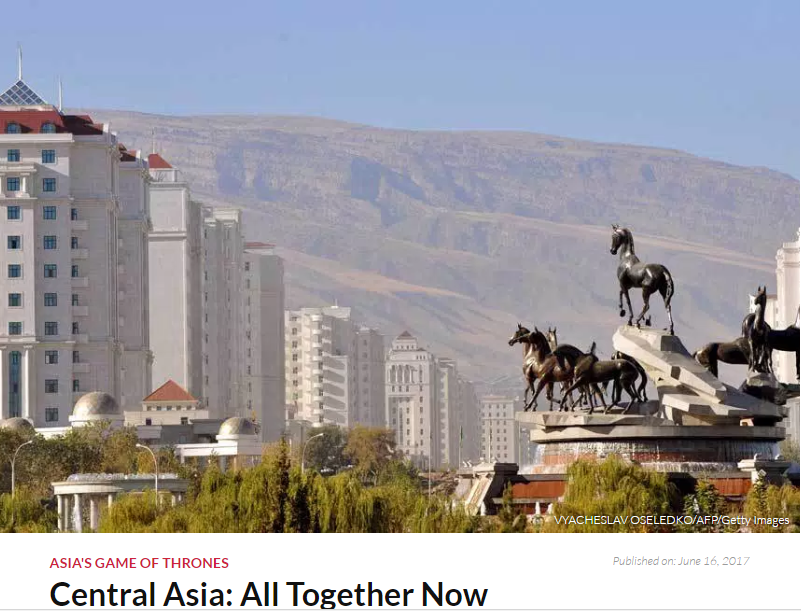
What The Trump Administration Might Mean for Azerbaijan
Spring 2017
By Svante E. Cornell
Predicting the future of US relations with any country under the Trump Administration may appear a fool’s errand. The new president has little political background, especially in foreign policy; and he has explicitly made unpredictability a mark of honour. Can anything, then, be said about the Trump Administration’s likely approach to Azerbaijan and the Caspian region? At this early date, only several preliminary conclusions can be drawn.
However, to appreciate the prospects of America’s approach to the region, it is useful to briefly examine the history of the past 25 years. Simply put, for the first half of the quarter-century since independence, there was a bipartisan consensus that held that the Caspian was an important region for American national security interests, and both Democratic and Republican administrations pursued balanced foreign policies that sought to advance security, trade, and democratic development. Yet in the second half of the period, this began to change, and an American disengagement from the South Caucasus and Central Asia has been very visible. This disengagement was most visible in the areas of security and trade; whereas the normative agenda of supporting democracy and human rights remained in full vigour, creating a lack of balance in US policies.
The Raucous Caucasus
Article, The American Interest, May 2, 2017
Svante E. Cornell,
The United States must restore its leverage and credibility in the restive region caught between Russia, Turkey, and Ira
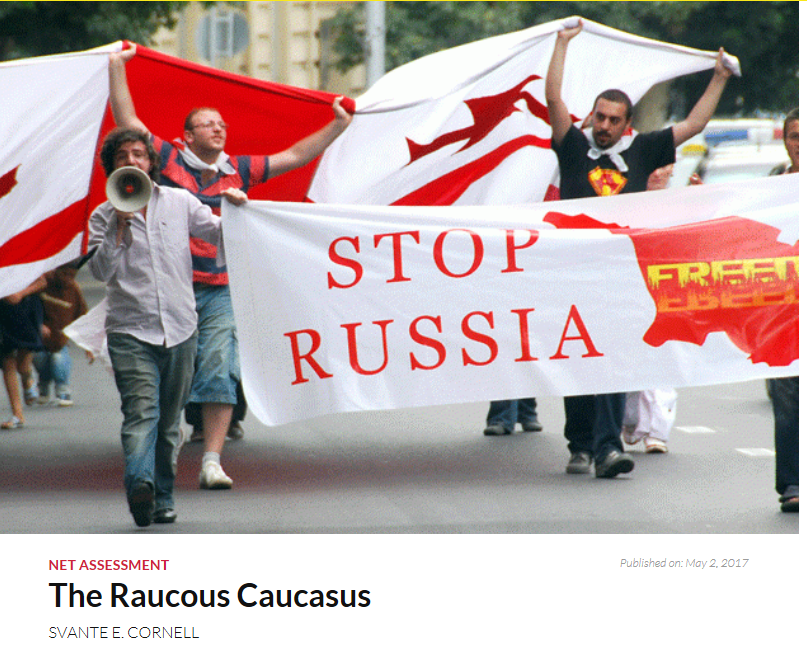
Turkey’s Authoritarian Legacy
Article, The Cairo Review of Global Affairs, May 1, 2017
Halil Karaveli, Turkey's Authoritarian Legacy
It's tempting to blame the country's recent slide into repression on President Recep Tayyip Erdoğan's thirst for personal power. But did the ruling Islamist party ever really abandon the country's long tradition of state authoritarianism?
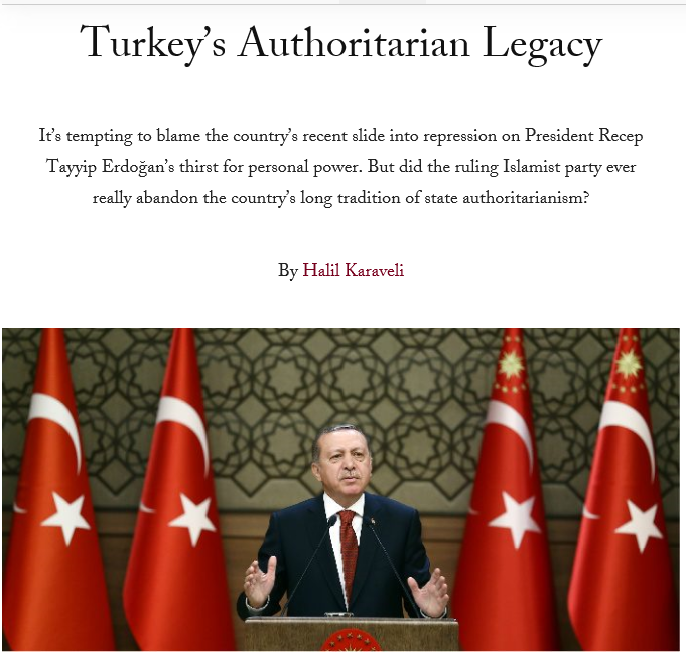
Time to Re-Engage
Article, The American Interest, March 17, 2017
S. Frederick Starr, Time to Re-Engage
Whipsawed by years of foreign policy activism and then by general retreat, the United States is at risk of losing an opportunity to cement hard-won gains in Central Asia/Afghanistan.
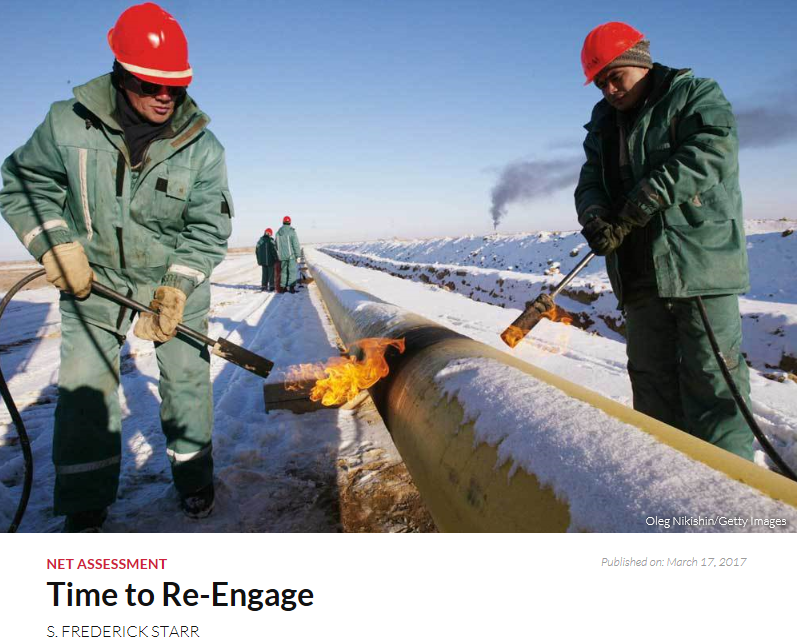
Russia: an Enabler of Jihad?
Op-Ed, Wilfried Martens Centre for European Studies, January 16, 2017
Svante E. Cornell, Russia: an Enabler of Jihad?
Russian officials have had to contain their glee in monitoring recent political events in America and Europe. They appear to think their days in the cold may soon be over. Much has been made of President-elect Donald Trump’s wish to improve relations with Moscow, but the last news out of France appears even more auspicious to Moscow.
The far-right candidate, Marine Le Pen, is known for her pro-Putin sympathies. Now, with François Fillon’s nomination as the center-right candidate, both major contenders in next year’s French presidential election are favorably disposed toward Russia.
These warmer feelings towards Russia are based, mainly, on changing threat perceptions in the West. Since the emergence of the Islamic State and the proliferation of terrorist attacks in Europe and America, many Europeans and Americans appear to view Moscow’s aggression against its neighbors, such as Ukraine and Georgia, as an increasingly esoteric problem.
Particularly after Russia’s intervention in Syria, even on the right many now view Russia not as a threat to the West but as a natural ally in defeating the jihadi threat.
While this notion is gaining popularity, it is at best the triumph of hope over experience, and at worst a dangerous delusion. Russia’s interaction with radical Islam over two decades shows that it is part of the problem, not the solution. In fact, leaders in Moscow have a track record of manipulating radical Islam whenever that has suited their purposes – including systematic collusion with Islamic extremists. A few examples illustrate this policy. Read more
Svante E. Cornell is Director of the Central Asia-Caucasus Institute & Silk Road Studies Program, a Joint Center affiliated with the Johns Hopkins University’s School of Advanced International Studies and the Stockholm-based Institute for Security and Development Policy.
Assassination in Ankara
Op-Ed, Foreign Affairs, January 3, 2017
Halil M. Karaveli, Assasination in Ankara
On December 19, Mevlut Mert Altintas, a Turkish police officer, assassinated Andrei Karlov, Russia’s ambassador to Turkey. His action was apparently meant as retribution for Russian bombings in eastern Aleppo, and he is the latest in a string of right-wing terrorists in Turkeywhose acts have served to draw Ankara back toward the West. Less than two weeks after the assassination, in the early hours of January 1, a gunman believed to have been affiliated with the Islamic State (ISIS) killed at least 39 people at an Istanbul nightclub. If such attacks continue, as they very likely will, they could undermine Erdogan's grip on power, which is what the wave of terror is all about, even if the perpetrators differ.
At this stage, it is impossible to know Altintas’ precise intention, whether he was a “lone wolf” or was directed by others, and what consequences the murder will have. But historical patterns offer some clues. First, Turkey has seen a long line of high-level assassinations carried out by the country’s right wing, made up of Sunni Islamists and Turkish nationalists, who have always been aligned in Turkish politics. The killers have typically had connections—a direct one in the case of Altintas, who was a riot police officer—with the country’s security agencies. Second, assassinations have tended to take place in particular geopolitical circumstances, namely whenever Turkey’s long-standing commitment to the Western security alliance has seemed to be in jeopardy. Read more
